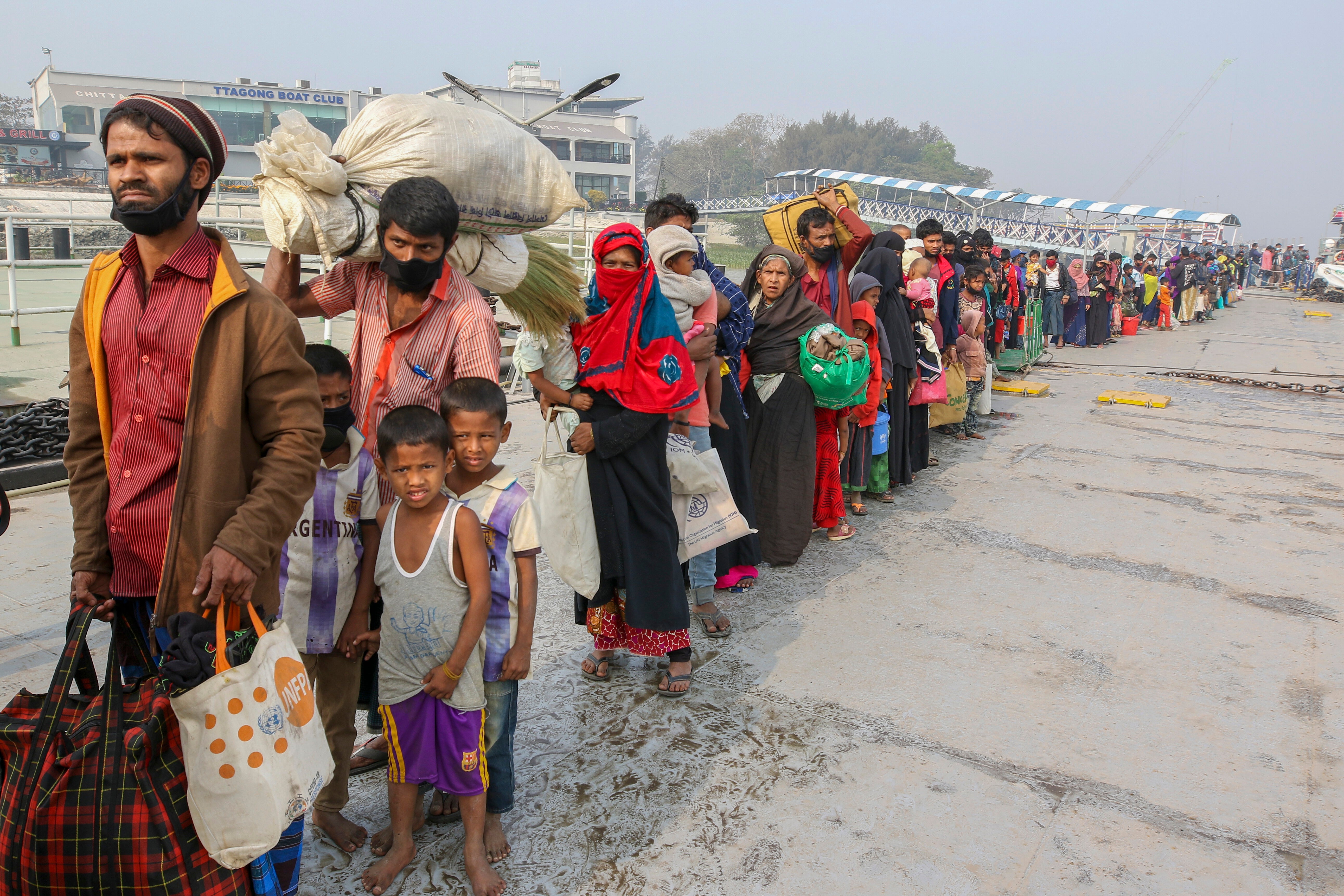UN: India coast guard helping Rohingya adrift in Andaman Sea
The U.N. refugee agency says the Indian coast guard has found a boat carrying Rohingya refugees adrift in the Andaman Sea and is provided them with food, water and medical care

The Indian coast guard found a boat carrying Rohingya refugees adrift in the Andaman Sea and provided them with food, water and medical care, the U.N. refugee agency said Thursday.
UNHCR said the Indian coast guard responded to its request and deployed a search and rescue team.
There was no immediate comment from Indian navy and coast guard officials.
The boat was believed to have left Bangladesh two weeks ago and then broken down at sea. The U.N. and rights groups have reported that many of the about 90 refugees on board were suffering acute dehydration and their families back in refugee camps are worried many may have already died.
UNHCR spokesperson Catherine Stubberfield said she appreciated the efforts of the Indian coast guard. "But given that the refugees are still adrift at sea, immediate disembarkation is absolutely critical to meeting their most basic human needs and ensuring that their safety is no longer threatened,” she said.
The U.N. agency said it did not know the boat’s exact location. On Monday it alerted nearby nations to look for the boat and said it was prepared to offer humanitarian assistance.
The mother of a 25-year-old man reportedly on the boat said she was praying for his safety.
“Oh God, save all of the people that are stuck on the boat including my son with your divine magic. Put them somewhere on the coast of the river. Please fulfill the wishes of my son to go there,” said Nasima Khatun. She spoke from Kutupalong refugee camp in Cox’s Bazar on the Bangladesh's border with Myanmar.
“Is my son alive? Has anything happened to him because of hunger? I do not know anything about what my son is doing, how he is surviving. He only took four liters of water,” she said.
Chris Lewa, director of the Arakan Project that monitors Rohingya Muslims who had fled persecution and violence in Myanmar for refugee camps in neighboring Bangladesh, said her group heard of at least eight people who died on the boat.
Lewa said the boat left the coast on Feb. 11 for a destination in Southeast Asia but its engine broke down. The Arakan Project has been unable to contact the refugees for several days.
“We had talked to them. But now they are traceless. They have no water or food, they are drinking seawater and dying,” Lewa said by phone.
Authorities in Bangladesh said they had no information about any boat that recently carried the refugees out of Bangladesh’s waters.
More than 1 million Rohingya who fled Myanmar are living in crowded camps. Several attempts to repatriate them have failed because the refugees refuse to go back fore fear of more violence in a country that denies them basic rights including citizenship.
Human traffickers often lure the refugees, promising them work in Southeast Asian nations.
Bookmark popover
Removed from bookmarks